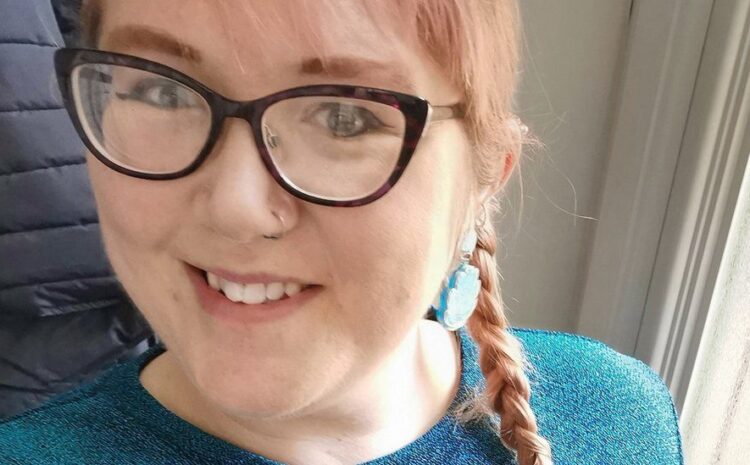
OXFORD UNIVERSITY image captionKimberley Featherstone is one of the patients who received the treatment during the trial
By Michelle Roberts
Health editor, BBC News online
It is expensive – a potent intravenous infusion of antibodies to neutralise the virus, rather than dampen the body’s inflammatory response to it.
Results from the Recovery trial suggest it could help one in three of those in hospital with severe Covid.
For every 100 patients treated, experts calculate, it would save six lives.
Ground-breaking treatment
But only those who have not already made any antibodies of their own to fight the virus should be given the treatment, which costs between £1,000 and £2,000.
Kimberley Featherstone, 37, who received the treatment during the trial, said: “I feel very lucky that the trial was up and running by the time I was taken to hospital with Covid-19 and I was able to receive this ground-breaking treatment.
The monoclonal antibody treatment, made by Regenoron, binds to the virus to stop it infecting cells and replicating.
- risk of death
- length of hospital stay, by four days on average
- likelihood of needing a ventilator to breathe
Joint chief investigator Sir Martin Landray said: “Giving them this combination of two antibodies by an intravenous infusion then actually reduces their chances of dying by a fifth.
“What we found is now here we can use an antiviral treatment, in this case these antibodies, in patients who have got a one in three chance of dying untreated and we can reduce that risk for them.”
Great uncertainty
The treatment was given in addition to the anti-inflammatory steroid drug dexamethasone, which itself cuts death risk by up to a third for the sickest Covid patients.
Using blood plasma from recovered patients – which contains antibodies that should recognise and fight the virus – has not proved effective as a Covid therapy, for example.
But the antibody treatment used in the Recovery trial contains large doses of two specific antibodies, made in the lab, that are good at latching on to the pandemic virus.
Sir Peter said: “It is wonderful to learn that even in advanced Covid-19 disease, targeting the virus can reduce mortality in patients who have failed to mount an antibody response of their own.

- LOOK-UP TOOL: How many cases in your area?
- SYMPTOMS: What are they and how to guard against them?
- YOUR QUESTIONS: We answer your queries
- GLOBAL SPREAD: How many worldwide cases are there?
- TREATMENTS: What progress are we making to help people?

